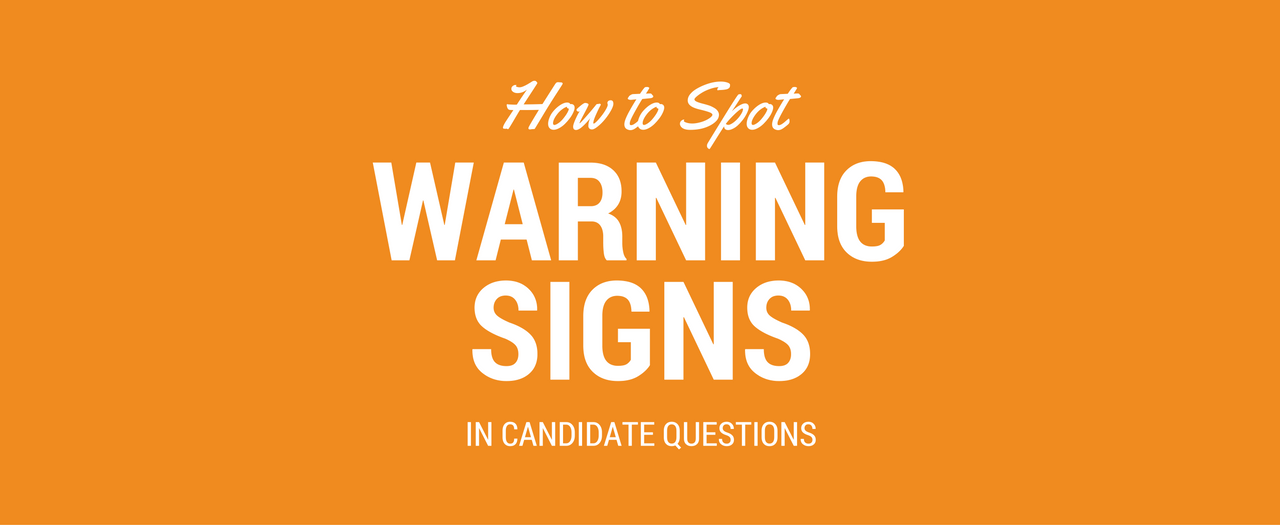Sometimes, when interviewing candidates, we can get so caught up in how the candidate’s respond to our questions that we forget the importance of the questions that the candidate is asking.
Typically, towards the end of the interview, the candidate has a chance to ask questions. It’s important for you to realize as a hiring manager that these questions can tell you a lot about the candidate’s priorities and work ethic. Paying close attention to the candidate’s questions can alert you to some potential red flags.
When the candidate is asking questions, take notice if the candidate is overly concerned with the following:
What’s in it for me?
Of course, everyone will think of this when considering a job opportunity. However, by this point the candidate should have a good feel for your company culture, career advancement within your company as well as the overall job responsibilities.
It is natural that the candidate will want to know the salary range and benefits offered. However, a red flag should be flying high if the candidate seems overly focused on this after the basics have already been explained.
This is the point in the interview where you will want to clarify the candidate’s expectations again regarding salary, benefits, and career progression. It’s important that you set the right expectations early on if you want to make the best hire that will stick around.
Work Hours
If the candidate seems to be obsessed with work hours or is already asking for time off before even receiving a job offer, you should see nothing but red flags.
It’s understandable that a candidate would want to know your standard business hours and expectations. However, when the candidate begins asking more questions about time off for lunch or breaks during the day or if leaving early is permitted, be wary.
Again, this is the time to clarify the candidate’s expectations and needs in order for you to determine if the candidate will be a good fit for your cultural environment and expectations.
Questions are Lacking in Thought
When you interview a candidate, you typically have questions prepared and well thought out in order to give you a good idea of the candidate’s experience, desires, potential, and cultural fit.
Don’t disregard the fact that the candidate has also had time to prepare for the interview.
Expect that a candidate should have prepared valuable questions to ask you at the end of the interview. These questions should surround the job duties, where you expect a new hire to be within a certain time frame of working at your company as well as questions regarding the company’s vision and growth plan.
If you are at the end of the interview and the candidate has no questions other than about money and work hours, you should be questioning the candidate’s true interest in your company and opportunity.
—
Need more tips on finding out if candidates are a good fit? Download our eBook!











